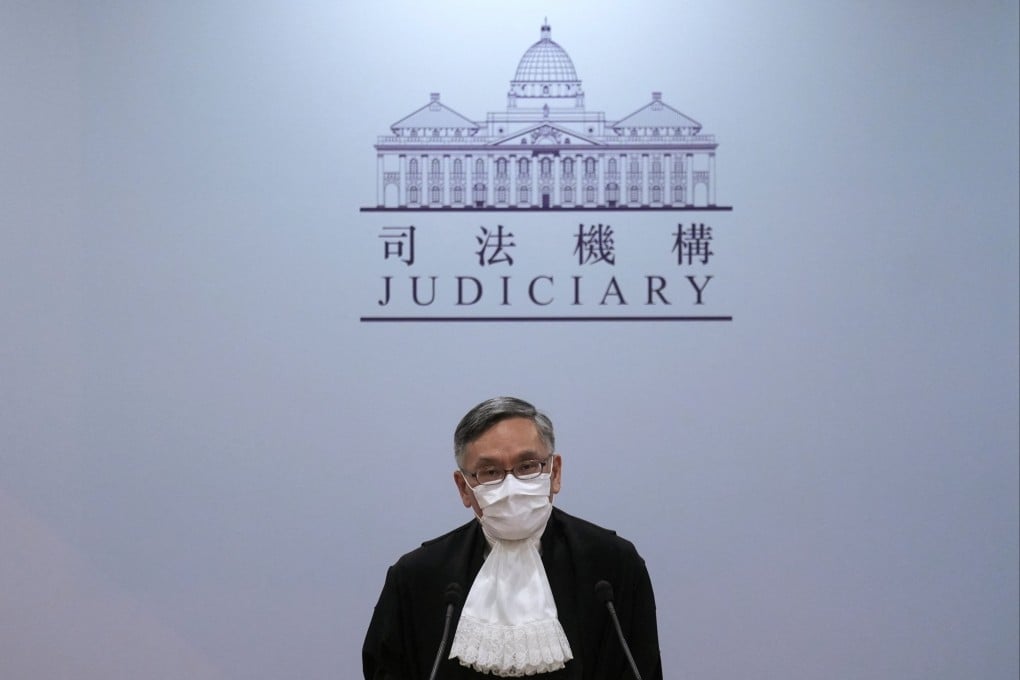Advertisement
Opinion | Judges handling national security cases in Hong Kong remain true to their judicial oath, defying critics
- The chief justice’s defence of the city’s judicial independence at the opening of the legal year was timely, particularly his rebuttal of continuing criticism over a provision in the law allowing the chief executive to designate judges who try these cases
Reading Time:3 minutes
Why you can trust SCMP
9

The enactment of the national security law for Hong Kong in June 2020 attracted much criticism, mostly unfair. One provision in particular, involving the choice of judges to try national security cases, irked some people.
Advertisement
The national security law requires the chief executive to designate particular judicial officers “to handle cases concerning [an] offence endangering national security”, and some have claimed this means that only judges will be selected who can be relied on to convict. This could not be further from the truth.
On January 24, at the ceremonial opening of the legal year, Chief Justice Andrew Cheung Kui-nung sought to put the record straight. He explained that judicial independence “exists as a fact” and has not been affected by the national security law. Once judges are designated by the chief executive, the focus switches to the judiciary to decide who takes on which case.
The assignment of particular cases is, he pointed out, the responsibility of the court leaders themselves, not the chief executive. This is the same procedure applicable to other criminal cases, and about which nobody has hitherto complained.

Since the chief executive, as a non-lawyer, will know little, if anything, about most judges or magistrates, it will necessarily follow that the chief justice, as envisaged by the national security law, will be consulted during the designation process.
Advertisement
Those designated – who serve for one year, which may be extended – are not a special breed, but come from the existing judiciary, where they will have proved their worth. Designation apart, the chief executive, under the Basic Law, also appoints all the judges, and this has never been controversial.

Advertisement
